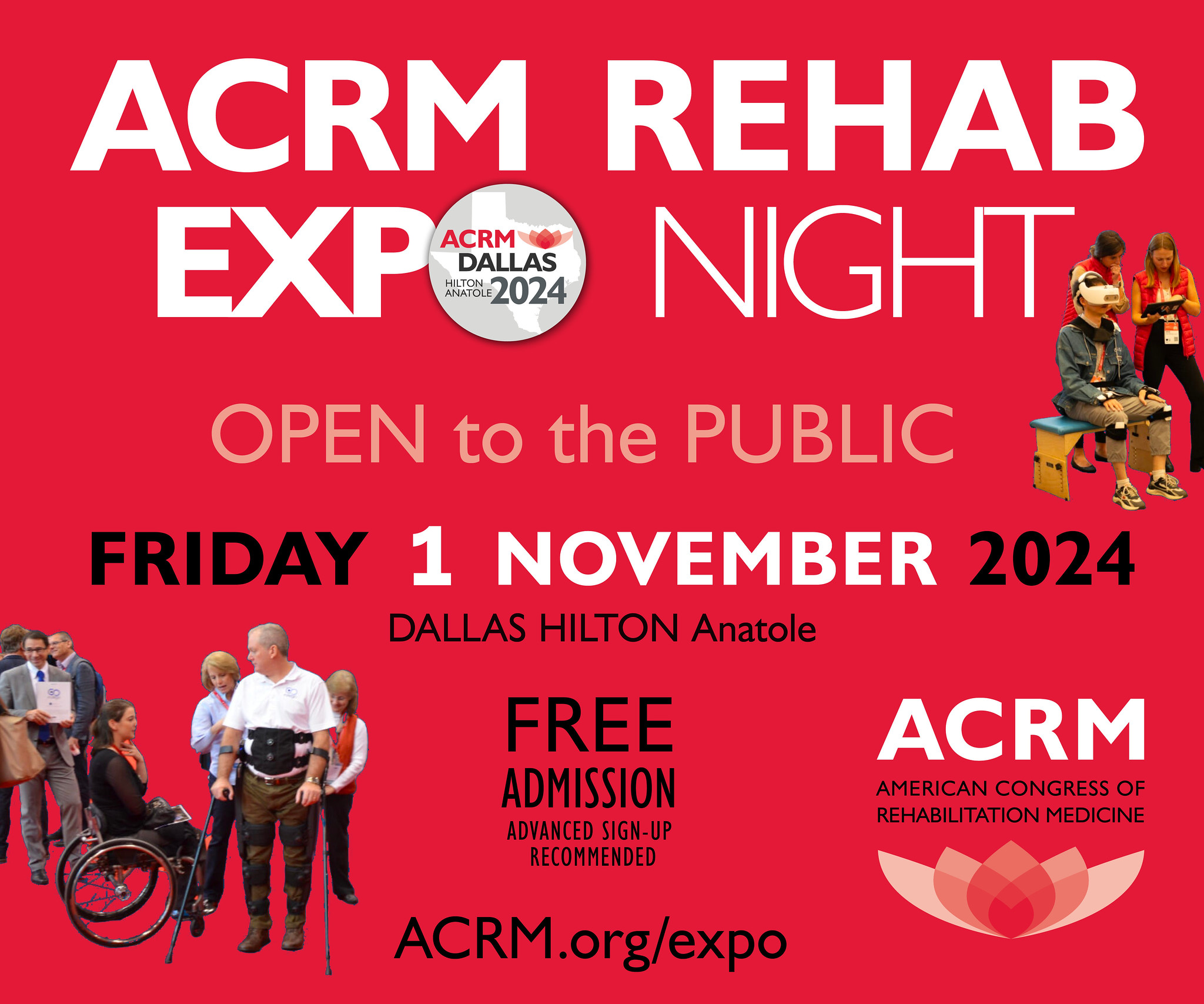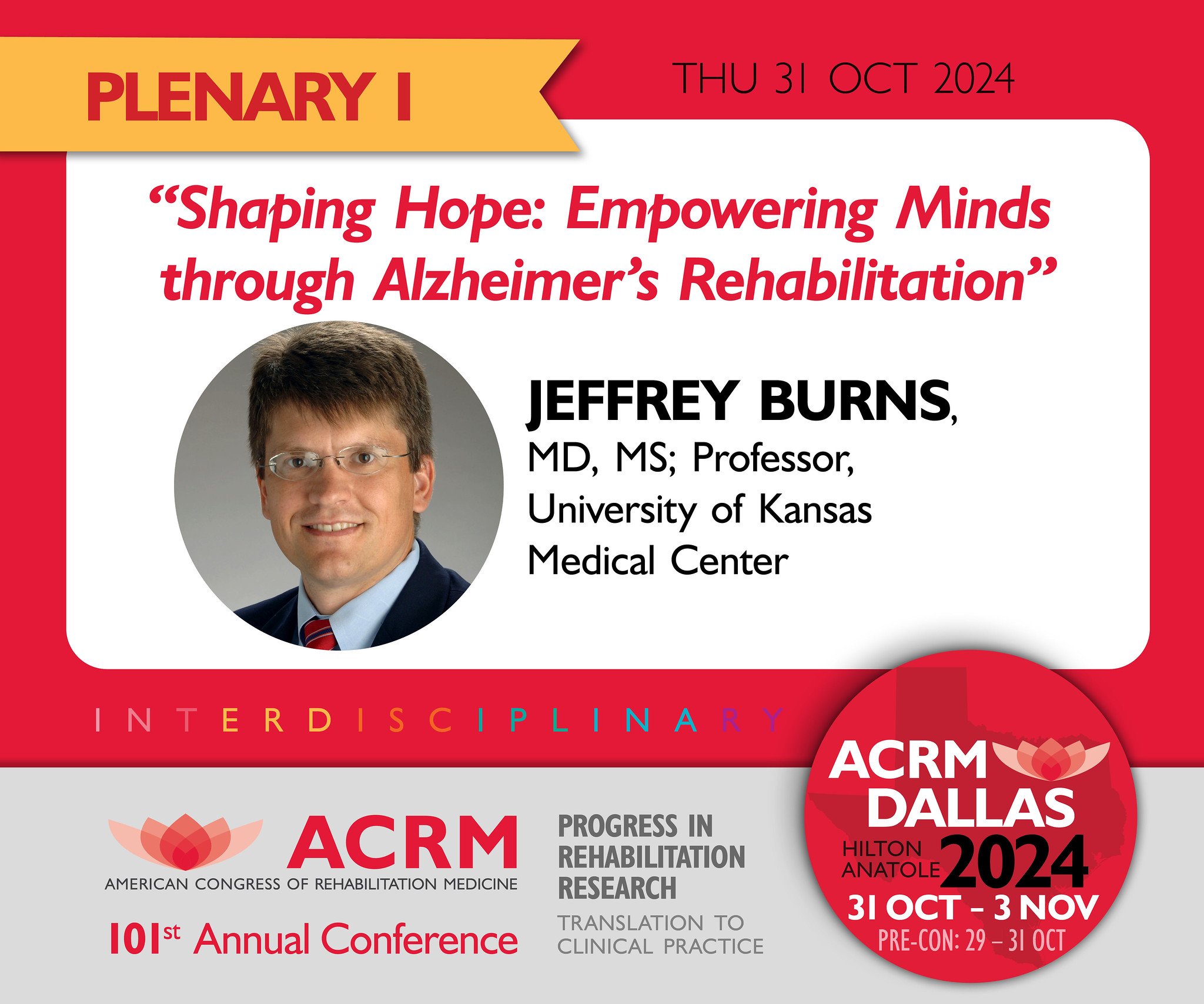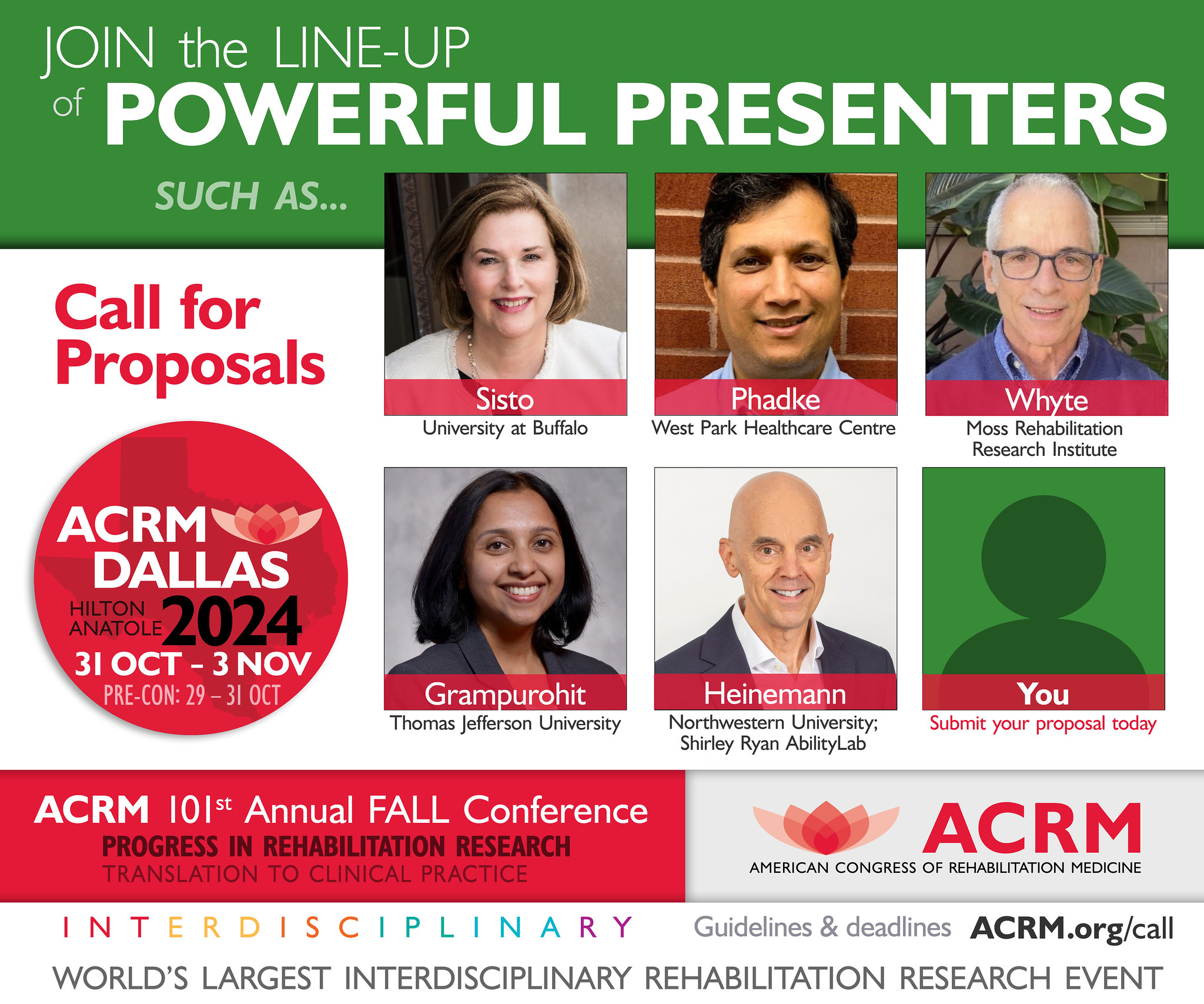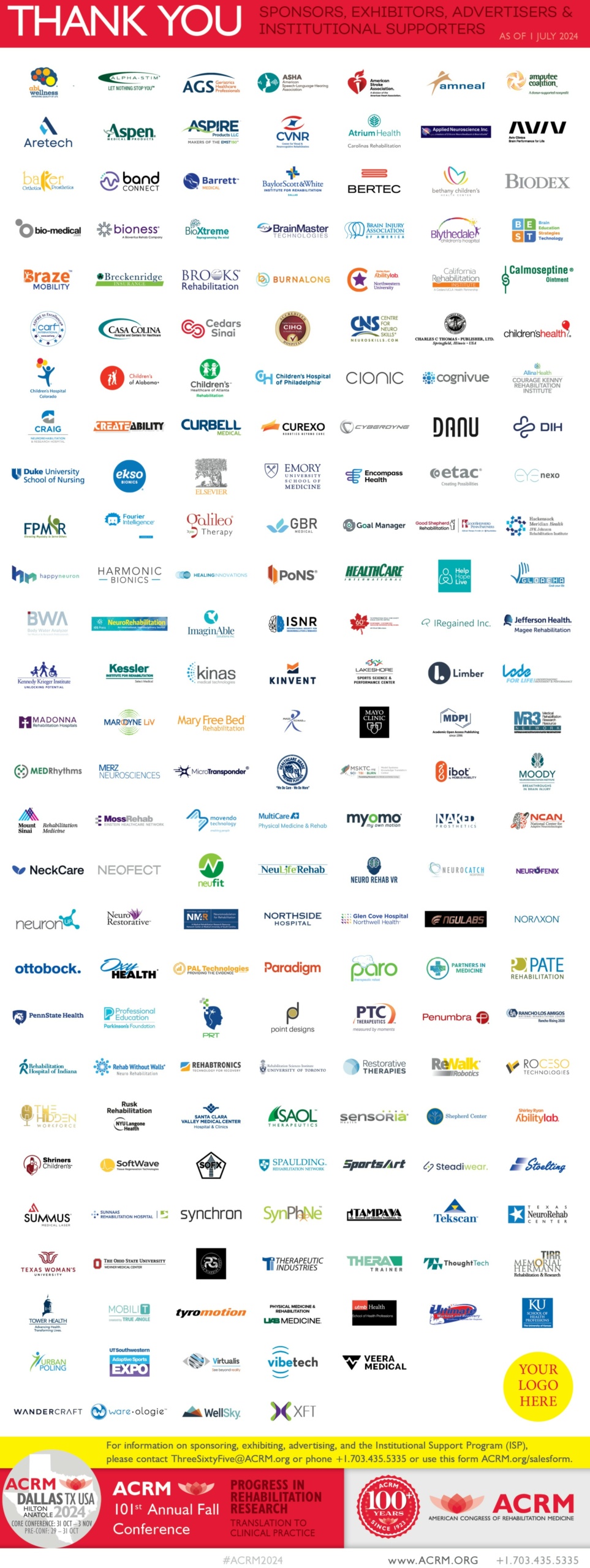2019 Conference Highlights
View Special Symposia >>
View Two-Day Pre-Conference Courses >>
View Instructional Courses >>
Special Symposia >>
Repetitive Transcranial Magnetic Stimulation for Depression in Traumatic Brain Injury >>

This presentation will describe new data on repetitive transcranial magnetic stimulation (rTMS) in patients with comorbid traumatic brain injury and depression. Empirical results from a pilot study will be presented with implications for future randomized controlled trials.
Learn more >>
The Public Health Burden of Traumatic Brain Injury >>

In the past, when estimating the public health burden of traumatic brain injury (TBI), epidemiologists have limited their scope to persons who experience disability immediately and continuously following the most severe injuries, a significant underestimate of the true public health burden. This presentation will share data from recent population-based studies suggesting consequences of TBI among a much larger group of people than those previously considered as being a “prevalent case”. An alternative model will be presented that is based on the principles of toxic exposure. Risk factors for experiencing a variety of adult consequences will be described.
Learn more >>
2019 SHELDON BERROL MEMORIAL CHAUTAUQUA
Chronic Traumatic Encephalopathy 2019: Current Understanding and Knowledge Gaps >>
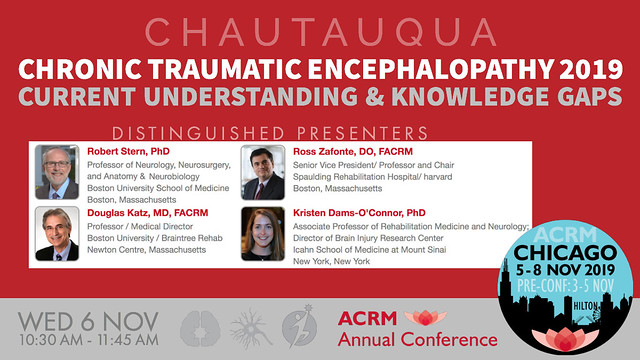
Chronic traumatic encephalopathy (CTE) is a neurodegenerative disease diagnosed neuropathologically in individuals with a history of exposure to repetitive head impacts (RHI). CTE has received increased attention due to a growing number of deceased former NFL players being diagnosed with the disease postmortem. CTE can only be diagnosed by neuropathological examination. However, provisional clinical research diagnostic criteria have been proposed and studies are underway to develop neuroimaging and fluid biomarkers diagnose CTE during life. This symposium will provide an overview of what is currently known about CTE, as well critical knowledge gaps and current and future directions in research.
Learn more >>
2019 Mark Ylvisaker Memorial Pediatric Brain Injury Symposium
Pediatric Cognitive Rehabilitation: How did it start? Where are we now? and Public Health Implications >>
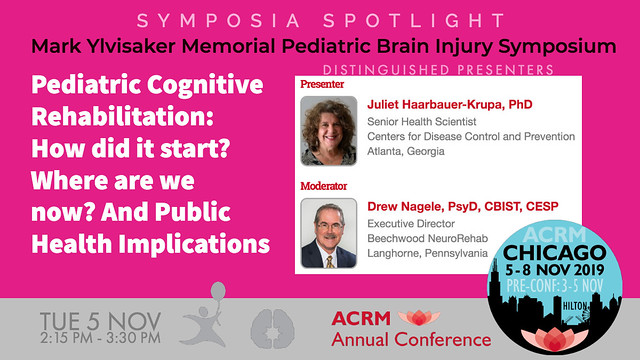
Cognitive Rehabilitation is an intervention to address the primary impairment resulting from TBI: Cognitive functioning. Over time, the healthcare length of stay for children has been significantly reduced and reports indicate unmet needs for cognitive remediation following TBI. At school, children apply cognitive skills to learning; however, the relationship of cognitive intervention to learning at school has not been fully explored. This talk will present the early viewpoint of pediatric cognitive rehabilitation and the evolution over time. The view of cognitive rehabilitation related to child development, service delivery, and the effects of TBI on school performance will be offered.
Learn more >>
Two-Day Pre-Conference Courses
Cognitive Rehabilitation Training // TWO DAY COURSE: SUN-MON >>
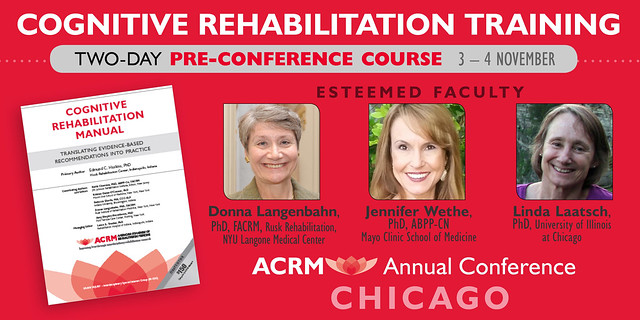
Based on the ACRM Cognitive Rehabilitation Manual: Translating Evidence-Based Recommendations into Practice, this introductory training teaches evidence-based interventions for impairments of:
–Executive functions
–Memory
–Attention
–Hemispatial neglect
–Social communication
The two-day workshop, led by authors of the Manual, provides an extraordinary opportunity to learn evidence-based cognitive rehabilitation strategies from leading researchers and clinicians in the field.
Learn more >>
Certified Brain Injury Training: The Official Academy Of Certified Brain Injury Specialists (ACBIS) Course // TWO DAY COURSE: SUN-MON >>
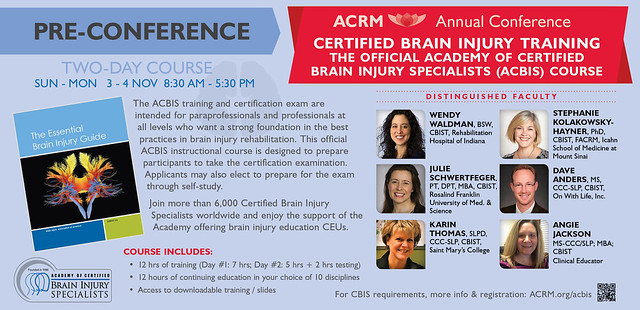
The Brain Injury Association of America (BIAA) offers a national certification program through its Academy for Certification of Brain Injury Specialists (ACBIS). To obtain CBIS certification, candidates must complete the required work experience and training and pass an examination.
This two-day training is the official ACBIS course designed to prepare participants to sit for the CBIS Certification Exam and join more than 6,000 Certified Brain Injury Specialists (CBIS) worldwide. The (optional) exam will be offered at the end of the course on 4 November.
Learn more >>
Instructional Courses >>
IC 13: TBI Expert Witness Boot Camp: What Brain Injury Rehabilitation Professionals Should Know >>

This instructional course will familiarize attendees with various aspects of TBI medicolegal and expert witness work including medicolegal roles (treater, expert witness, peer reviewer, and consultant), ethics, business and legal issues of medicolegal involvement, and medicolegal examination, report and testifying recommendations.
Learn more >>
IC 1A: The Experience of Individuals with ABI and their Families: Family Intervention in the Rehabilitation Setting >>

Acquired brain injuries (ABI) can have deleterious effects on family life,often changing roles and routines, and fostering intense and prolonged caregiving duties. Individuals with ABI and their partners may experience Increased familial distress, marital strain, reduced sexual intimacy and overall disatisfaction with the relationship. Yet, healthcare professionals are unsure on how to most effectively intervene to improve problem solving, communication, affective responsiveness, affective involvement, and behavioral control within the family unit. This workshop aims to introduce a manualized culturally competent intervention appraoch of family systems developed by Juan Carlos Arango-Lasprilla, PhD. & colleagues, for use in the rehabilitation setting.
Learn more >>
IC 18: Diagnosis and Management of Non-Sports Related Concussion (nSRC): An Interdisciplinary Approach >>

An interdisciplinary group of professionals will discuss the diagnosis and management of concussion and post-concussion syndrome, highlighting some of the unique difficulties associated with treating non-Sports Related Concussion (nSRC). From diagnosis and initial management to return to work/school strategies, the challenges associated with treating this often misunderstood diagnosis will be discussed. Speakers from a variety of professions, including medicine, the allied health professions, psychology, and optometry will be featured.
Learn more >>
IC 19: Building Your Toolkit to Address Sexuality and Intimacy After Brain Injury >>

This workshop on sexuality and intimacy in brain injury rehabilitation has been developed to reduce stigma and build knowledge, imparting an increase in comfort that leads to action in addressing the topic for our patients. Content shared will include: biopsychosocial factors, sexual dysfunction and the impact on the person with a brain injury and their partners, cultural and interpersonal aspects to consider, and communication strategies to employ. Throughout the workshop, attendees will participate in reflection on current practice and potential biases, as well as institutional practices and policies. Upon completion of the workshop, attendees will come away with tools to facilitate change in practice within their organization.
Learn more >>
IC 32: Bench to Bedside: A Guide for Implementing Evidence Based Interventions into Practice at Organizational Level >>

Implementation of evidence based interventions (EBI) has proven to be a challenge in the rehabilitation community. Literature indicates that the integration of EBI into consistent practice can take 17 or more years. Therefore, individuals are not benefitting from interventions evidence has shown will enhance the rehabilitation process. This workshop will provide an overview of Knowledge Implementation theory, the Knowledge-to-Action cycle. Participants will have an opportunity to work in facilitated groups to begin a preliminary analysis of their own organization to develop plans as to how to capitalize on facilitators and overcome barriers to implementing EBI as a practice standards.
Learn more >>
LEARN MORE | REGISTER | BOOK HOTEL | ONLINE PROGRAM
ACRM 96th Annual Conference | Progress in Rehabilitation Research
CORE: 5 – 8 NOV 2019 // CHICAGO USA // PRE-CONFERENCE: 3 – 5 NOV 2019



